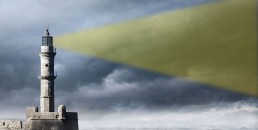In the next part of this blog series iUniverse author John C. Woodcock continues to conceptualize his writing for us.
“This conception helped as I began to understand that the nature of my writing involved, not any genre or established craft, but a breakdown of such categories, and indeed, a breakdown of fundamental categories such as mechanical space and linear past, present, and future, those very categories that constitute the background of our stabilized modern structure of consciousness. This early formulation helped to distinguish what I had believed was merely a personal breakdown from an objective breakdown of categories occurring “in the background” of modern consciousness. This real process at present has no category with which to name and therefore grasp it, since it involves a breakdown in categories. I could use names like “fictive”, or “imaginative”, but these categories come loaded with a history that has deprived them of any truth or reality. In fact these words currently mean the opposite—not real, fantasy, entertainment only, falsity, etc.
But the phenomenology is conclusive. This process is real and has no referent outside itself. For example a breakdown of categories does not refer outside itself to a literal break down on a personal level or to the scale of a literal world catastrophe, although many people who are caught up in these background movements often make these misinterpretations. And yet, because this movement is the real background or the “within-ness” of the world, then it follows that madness or world catastrophe are not to be excluded after all.
How can we understand the necessity of this contradiction?”
An example from Jung
“An example may help us here. C. G. Jung had a series of “world catastrophe” visions just prior to the outbreak of the First World War. In his book Memories, Dreams, Reflections he offers two contradictory interpretations. Being an experienced psychiatrist he understood psychosis very well and at first felt he was being menaced by one. But when the war broke out he began wonder instead how his personal inner experiences could have something to do with subsequent events in the real world (the catastrophe of the war). This question of the connection between inner psychic events and outer events in the world became a lifetime’s work for Jung, and is no less important and perhaps no more understood today.
In fact, for the next several years Jung was caught up in psychic processes that involved a breakdown of categories such as inner and outer, and he went through a very real personal breakdown that simulated psychosis (auditory hallucinations, talking to invisible figures, extreme emotional states etc.) but, unlike madness, Jung’s ego remained intact. He was able to reflect upon, as well as undergo the breakdown of categories.”
 Look out for the next installment of this fascinating iUniverse series of insights into author John C. Woodcock’s writing. To learn more about John, his books and his thinking, visit his website. To see all of his books visit the iUniverse Bookstore.
Look out for the next installment of this fascinating iUniverse series of insights into author John C. Woodcock’s writing. To learn more about John, his books and his thinking, visit his website. To see all of his books visit the iUniverse Bookstore.
Related posts:
iUniverse is delighted to announce that Tweeker Parade, written by Philippa LeVine, has been signed ...
Yesterday iUniverse author Justin Treece revealed the inspirations behind his writing and debut ...
Author Tom Guzick tells us about The Red Room, his collection of memoirs from coaching high school b...

